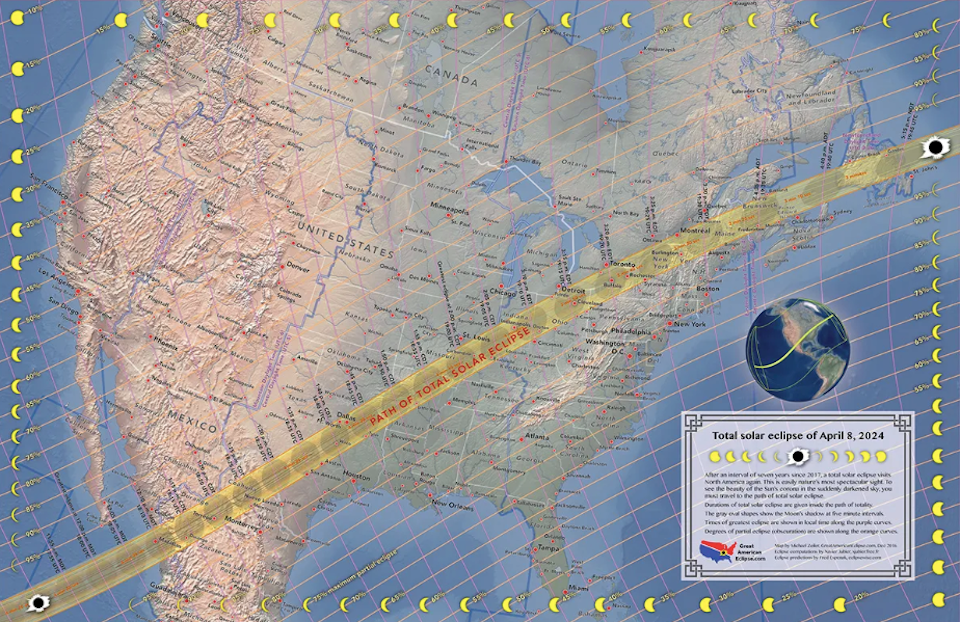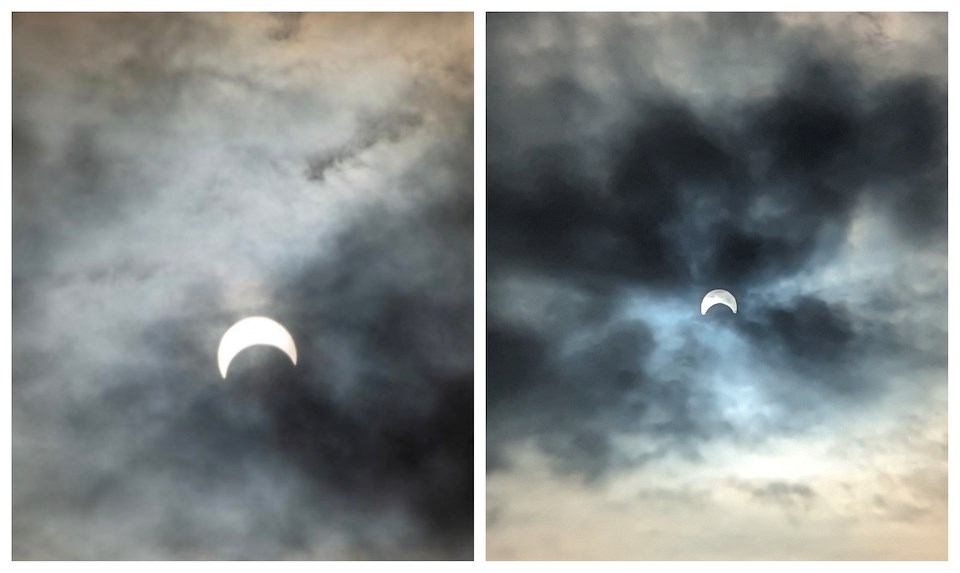The Metro Vancouver weather forecast didn't provide ideal conditions to view the annular solar eclipse -- but some locals managed to capture pictures of the event.
Following a couple of tempestuous weather events in September, including a bomb cyclone that resulted in widespread power outages and travel disruptions, the beginning of October hasn't seen any particularly stormy moments.
But the cloud coverage prevented sky-watchers from catching a complete view of the solar eclipse on Saturday, Oct. 14.
During the rare event, the moon moves between the sun and Earth and the display will be visible in parts of the United States, Mexico, and many countries in South and Central America, according to NASA.
The eclipse was considered "annular" because the moon was at its farthest point from Earth, making it appear smaller than the sun. Since the moon was farther away, it didn't completely block the light from the bright star.
While they didn't get a perfect view, locals were able to catch some shots of the sky event on Saturday.
Clouds parted just enough so BIL got a nice shot of the #Eclipse
— BCCHR ResDev (@grantsfacilitat) October 14, 2023
photo by GZA pic.twitter.com/iKouava56f
Our oldest grandson in Maple Ridge got this of the eclipse. @amybp76 @jack9simpson pic.twitter.com/HgxByk9IJz
— Kenn Cawker (@CawkerKenn) October 15, 2023
Managed to capture a decent shot of the eclipse here in
— Wild and Raven (@wildnraven) October 14, 2023
south Surrey, BC this morning!
Did you manage to see it? The clouds filtered it nicely
Shot with iPhone 12 unedited pic.twitter.com/qBSYiADdxa
The clouds gave us a chance to see the partial eclipse with the naked eye #nofilter #Eclipse #bcstormwatch pic.twitter.com/nIth3Ey9JP
— Cham (@CarpainterChris) October 14, 2023
May you have a piece of light in your lives. This morning's eclipse. Sepia tone care of my welding mask. pic.twitter.com/XP9zD9ShrL
— Josh (@heathenyak) October 14, 2023
Four lovely shots from NOAA-19 and my own weathre satellite ground station here in Metro Vancouver. Unfortunately it remained mostly overcast for the solar eclipse, although there were a few glimpses through breaks in the cloud. @bc_news_addict @RyanVoutilainen @WestSeaWx pic.twitter.com/crs8GDdvsZ
— Peter Vogel (@PeterVogel) October 14, 2023
Caught a bit of eclipse pic.twitter.com/Nngr1JxVgx
— Cheryl (Gresh) Des (@CherylDes) October 14, 2023
Eclipse 2023 pic.twitter.com/sUDGhNHT7A
— Raymond McConville (@DrRaymondMc) October 14, 2023
How often does a solar eclipse happen?
Solar eclipses generally happen a couple of times a year to as many as five, although it is less common to have that many.
The next solar eclipse will take place on April 8, 2024.
"The eclipse will enter Canada in Southern Ontario, and continue through Quebec, New Brunswick, Prince Edward Island, and Cape Breton," according to NASA.

Weatherhood shows forecasts for specific neighbourhoods across Metro Vancouver, including hourly breakdowns throughout each day, such as how much rain is expected to fall at a given time. This means you can keep track of updates to the forecast if you plan to head out to view a space event potentially avoid the wetter places. While it may seem surprising, some places, even ones that are relatively close together, may not experience the same weather.



